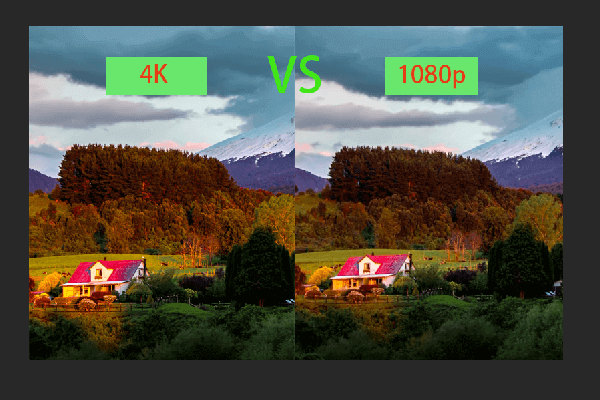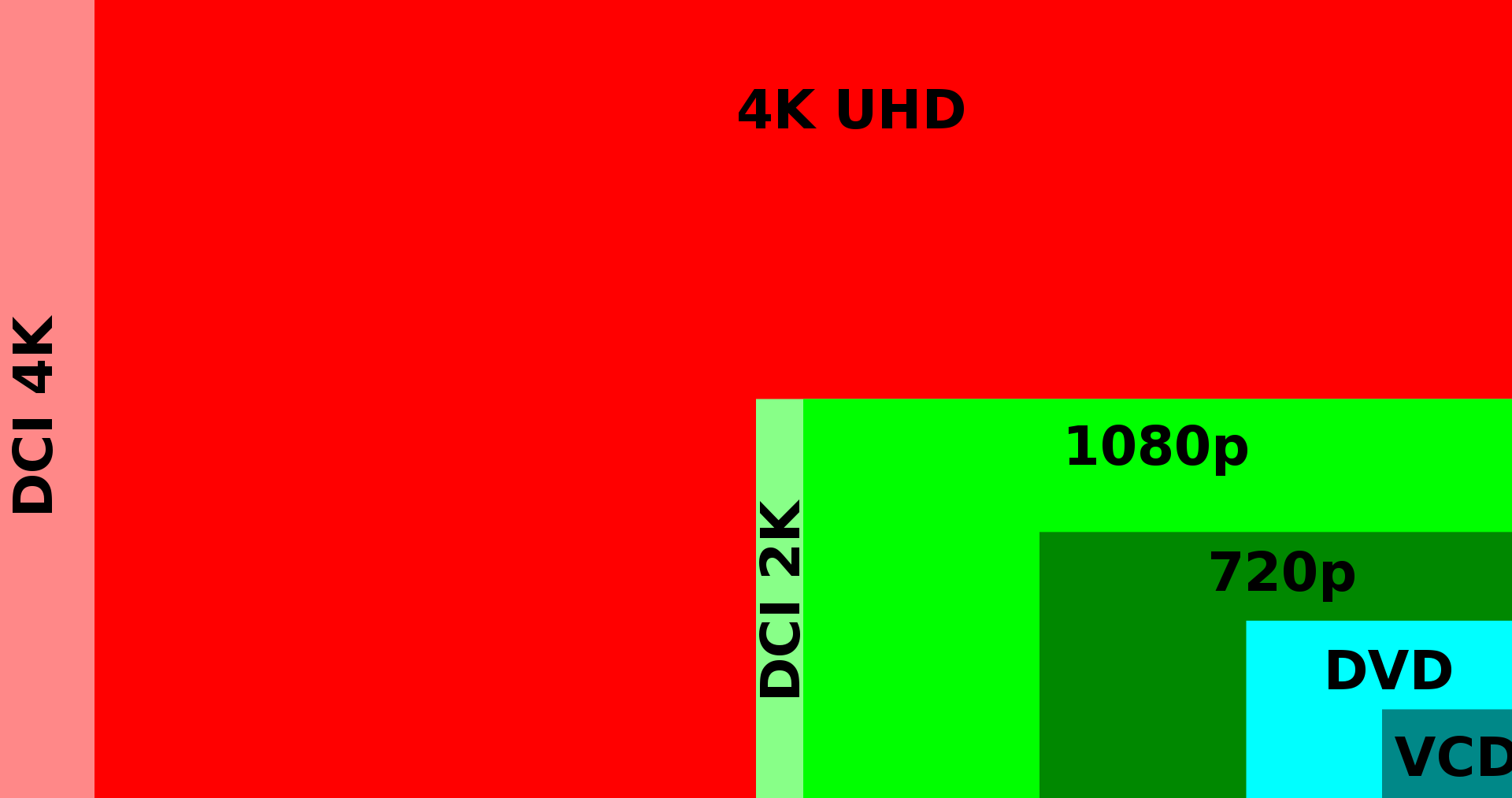Blu-ray vs. DVD: the Difference and the Better Choice
Summary: Blu-ray and DVD are two types of optical discs that are used to store and play back high-definition and standard-definition video. While both formats serve the same purpose, there are some key differences between them. In this article, we will discuss the main differences between Blu-ray and DVD and introduce the best DVD and Blu-ray copy software.
Table of Contents
Here we're going to break down the three-way showdown: DVD vs Blu-ray vs 4K Blu-ray, but is the latest technology always the best choice?
Before proceeding to Blu-ray vs DVD, we will discuss what the Blu-ray and DVD are. Blu-ray came after DVD, but what's better than what came before? And why does it still exist when DVD was replaced and is DVD still better in some ways? Oh yeah, and what about 4K Blu-ray? First of all, there are a lot of questions, don't worry, we will cover them all. However, Blu-ray does offer significant advantages over DVD.
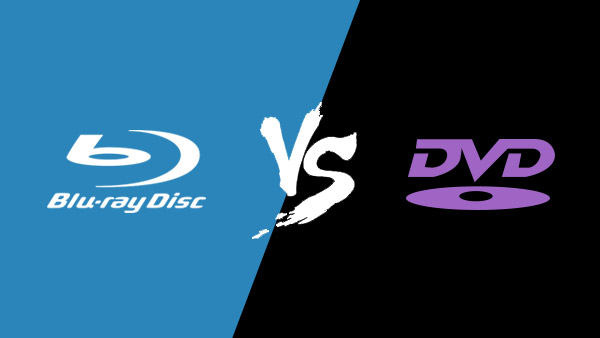
Blu-ray vs. DVD - What Are They
What is Blu-ray?
Blu-ray is a digital optical disc data storage format that was designed to supersede DVDs, offering more than five times the storage capacity. It's called "Blu-ray" because it uses a blue laser (rather than red used for DVD) to read and write data. It can also store and play back large amounts of data, including video games and interactive content.
The storage capacity of Blu-ray discs is five times greater than that of a standard DVD. One-layer discs can hold up to 25GB, while a disc which is dual-layer can contain up to 50GB of storage space. It's also possible to store 1080p HD videos on a Blu-ray disc. 480p videos can only be stored on a regular DVD. That Blu-ray can provide you with deeper depth, various color tones, and fine detail during playback is beyond dispute.
What is DVD?
DVD, which stands for Digital Versatile Disc or Digital Video Disc, is a type of optical disc storage technology. It was invented in 1995 and became widely used for the storage and playback of movies, music, software, games, and other forms of digital media. A single-layer DVD can store up to 4.7 GB of data while dual-layer DVDs can store up to 8.5 GB. DVDs are capable of storing more data than CDs.
Repeated playback of a DVD does not degrade the video quality. At 720p resolution, a standard DVD may carry more than two hours of film. It's compatible with nearly any DVD drive on a computer.
Blu-ray vs. DVD - Difference Between Blu-ray and DVD
Now that we've understood the basics of Blu-ray and DVD, let's delve into a detailed comparison between the two formats to highlight their distinct features, advantages, and potential drawbacks. We'll first present an overview through a tabular comparison from various angles.
| Aspect | DVD | Blu-ray |
|---|---|---|
| Storage Capacity | Limited (typically up to 8.5 GB for dual-layer DVDs) |
High (up to 50 GB or more for dual-layer Blu-ray discs)
|
| Video Quality |
Lower resolution, often up to 480p or 720p
|
Higher resolution, supports HD and even 4K UHD content
|
| Audio Quality |
Supports standard audio formats, like Dolby Digital, DTS surround sound
|
Supports high-quality audio formats like DTS:X, Dolby Atmos
|
| Player Compatibility | DVD players, computers | Blu-ray players, some computers |
|
Laser Technology
|
Use red lasers with a wavelength of about 650 nm
|
Uses blue lasers with a shorter wavelength of about 405 nm
|
| Price | Generally cheaper | More expensive |
| Release Date | 1995 | 2006 |
Storage Capacity
One of the most significant differences between Blu-ray and DVD is their storage capacity. A standard DVD can store up to 4.7 GB of data, while a single-layer Blu-ray disc can store up to 25 GB. Dual-layer Blu-ray discs can store up to 50 GB of data, which is almost 10 times the storage capacity of a DVD. This increased storage allows for higher resolution content and additional features.
Image Quality & Resolution
DVDs typically support Standard Definition content (480p), although some can upscale to higher resolutions via specific players or software enhancements. Conversely, Blu-rays are designed for High Definition content (up to 1080p) and even Ultra High Definition (4K) in newer models.
Audio Quality
In addition to improved video quality, Blu-ray also offers better audio quality than DVD. Blu-ray discs can support a wide range of audio formats, including lossless formats like Dolby TrueHD and DTS-HD Master Audio. These formats provide higher quality sound and greater dynamic range than the compressed audio formats used on DVD.
Compatibility
Another important consideration when choosing between Blu-ray and DVD is compatibility. While all Blu-ray players can play standard DVDs, not all DVD players can play Blu-ray discs. This means that if you have an older DVD player, you will need to upgrade to a Blu-ray player in order to enjoy the benefits of Blu-ray.
Data Transfer Rate
The data transfer rate of Blu-ray is significantly faster than that of DVDs due to its use of blue-violet laser technology which has shorter wavelength compared to the red lasers used by DVDs. This makes it possible for Blu-ray discs not only to hold more data but also read this data at a much quicker pace resulting in smoother video playback especially in high-resolution formats.
Cost
Blu-ray discs are typically more expensive than DVDs, due in part to the higher cost of producing the discs. Additionally, Blu-ray players are generally more expensive than DVD players. However, the cost of both formats has decreased significantly over the years, making them more affordable for consumers.
Is DVD Better Than Blu-ray?
The Blu-ray is always better than the DVD when considering the storage capacity and video quality. However, for the DVD, you still have to pay less. The DVD player and the DVD are much less expensive in comparison to their Blu-ray counterparts. If you still do not have a modern TV and have a collection of DVDs, then it will be best to buy a DVD player instead of a Blu-ray player.
Still, most of the movies are released on DVD in addition to Blu-ray as well. So, you won't miss out on major blockbusters if you continue using your DVD player. It is not sure how long it may continue. However, it seems that the future of DVDs will remain safer for the coming few years as a minimum.
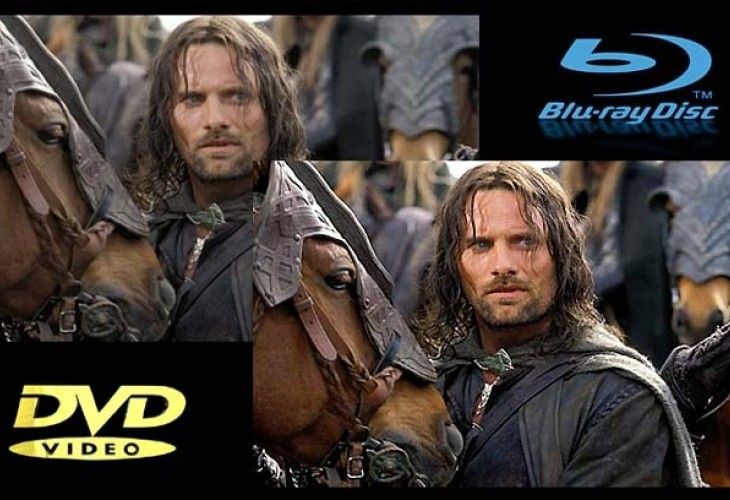
What is 4K Blu-ray
A 4K Blu-ray is a Blu-ray that outputs TV shows and movies in the native 4K resolution instead of the standard High Definition resolution that a normal Blu-ray. It depends on two factors to invest in a 4K Blu-ray player. Do you own a 4K TV? If not, then do you have a plan to get a 4K TV in the near future?
If there is already the best TV you have, then the 4K Blu-ray will be a no brainer. The Bu-ray will enable you to get the most out of the shiny 4K TV and also play standard Blu-rays and older DVDs. You may dive into your future now. Otherwise, you won't be able to get the most out of the 4K TV you have purchased.
And, in case you previously don't have a 4K TV, we will seriously consider upgrading first. However, if you don't want or are unable to afford a 4K TV right now, you still need to consider the 4K Blu-ray player.
Tips: Convert DVD/Blu-ray to Digital Formats
Transitioning from physical discs like DVDs or Blu-rays towards digital formats offers several advantages such as portability, space-saving, and convenience of use across multiple devices. DVDFab DVD Ripper and DVDFab Blu-ray Ripper provide an excellent solution for this transition by enabling you to easily convert your DVD/Blu-ray collection into various digital formats suitable for playback on different platforms.
Key Features of DVDFab DVD/Blu-ray Ripper
- Bypass all disc encryption, including the most recent, effortlessly
- Transform DVD/Blu-ray discs, ISO files, or directories into more than 1000 video and audio formats
- Leverage advanced GPU acceleration technology and multitasking capabilities
- Extract content from Blu-ray for 245+ device configurations, such as Huawei and Apple devices
- Modify videos by utilizing the integrated video editor to alter, cut, trim, crop, add watermarks, or subtitles
- Auto-synchronize all the meta info of the source DVD/Blu-ray, including movie title, cast, and cover, and display them on media server.
How to Use DVDFab DVD/Blu-ray Ripper?
Step 1: Launch DVDFab and load the DVD source.
Run DVDFab 13 and select the Ripper option. Insert your DVD disc into the optical drive or navigate to it via the Add button. If the source is an ISO file or a folder, simply drag and drop it onto the workspace.
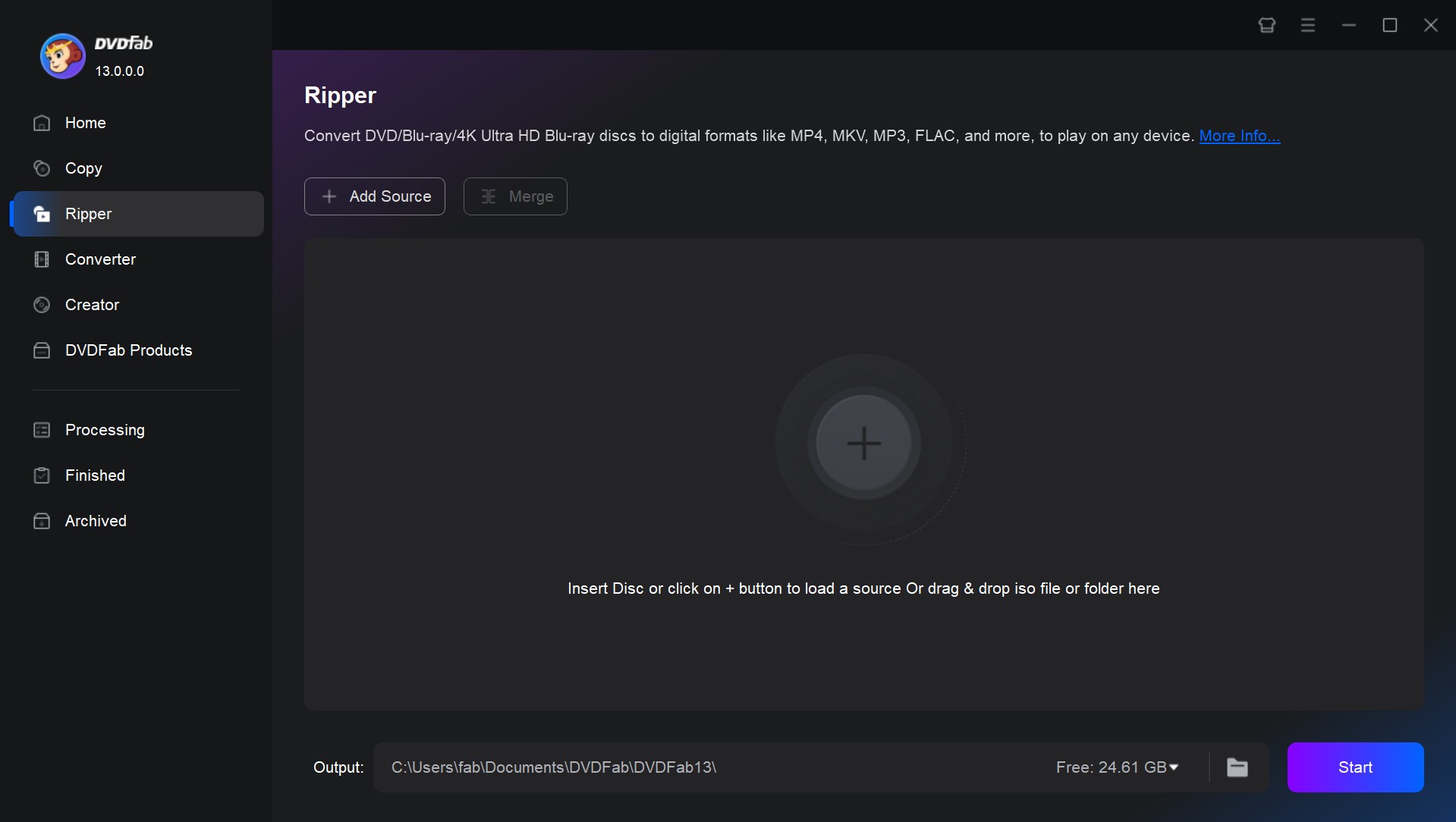
Step 2: Choose one profile and customize the output DVD video.
Click "Choose Other Profile" to choose to convert your Blu-ray or DVD to MP4, MKV, AVI, or any other digital formats. Options are available to select audio tracks and subtitles, set video and audio parameters, and more.
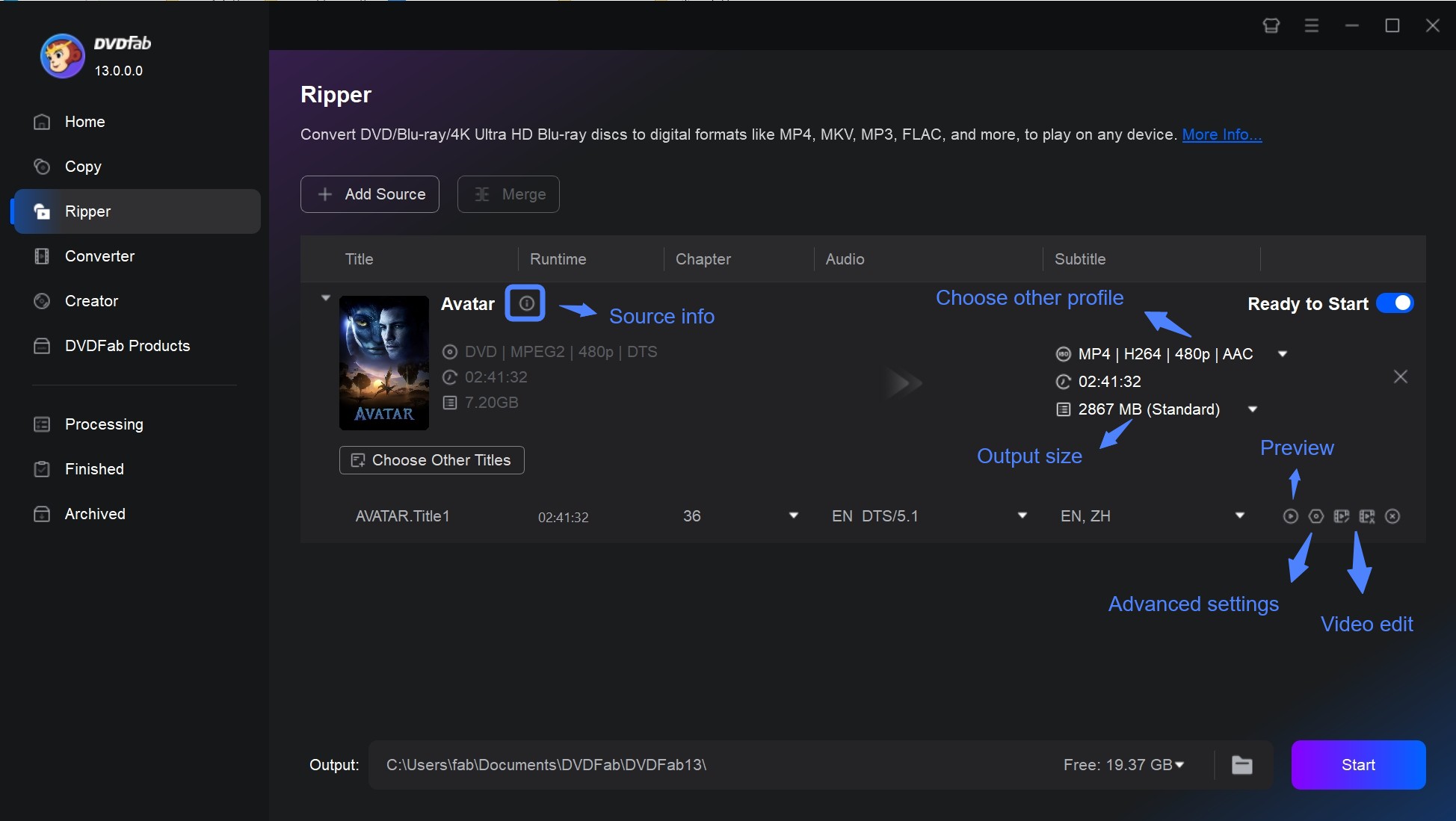
Step 3: Start to rip DVDs for free and fast.
Finally, save your video on your HDD, Mobile device, or upload it to YouTube. Click the Start button, and the actual DVD ripping process will be clearly shown.
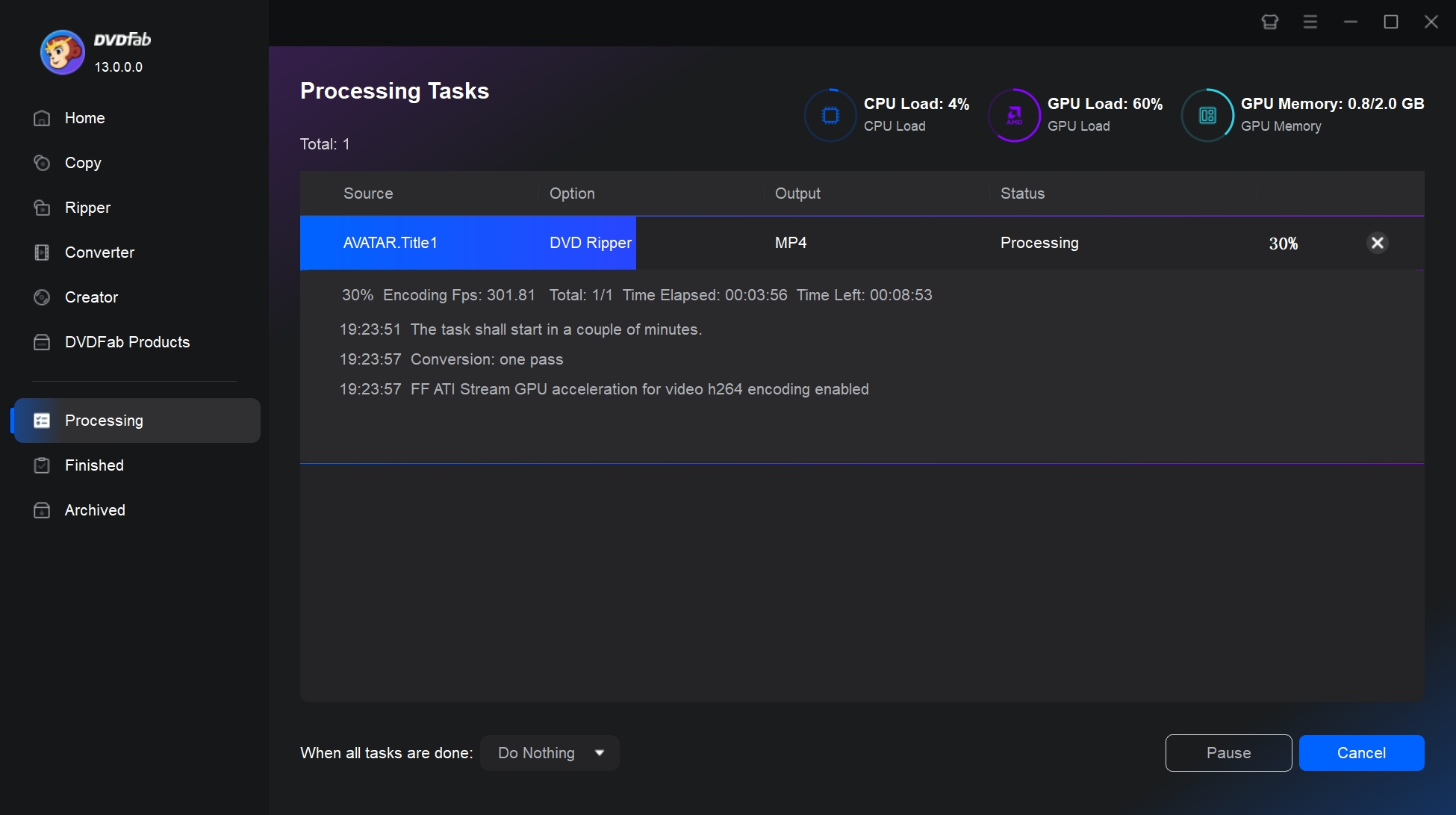
FAQs
Whether Blu-ray is worth the money depends on your specific needs. If you value high-quality video and audio, and own a setup (like a 4K TV and sound system) that can take advantage of it, then yes, Blu-ray could be worth it. However, if convenience and variety are more important to you, streaming services may offer better value as they typically have broader selection at lower cost.
It is possible to store more data on a 12cm optical disc using HD DVD and Blu-ray. HD DVDs can hold up to 15GB of data on a single layer, whereas Blu-ray discs can hold up to 25GB of data. There are several different codecs supported by HD DVD; Blu-ray also supports H.264/MPEG-4 AVC and VC-1 H.265 for higher image quality than DVD. In terms of image quality and storage space, Blu-ray surpasses HD DVD.
No, you cannot play Blu-ray discs on a DVD player. Blu-ray and DVD are different formats, and the technology used to read them is not the same. A DVD player's laser is not capable of reading Blu-ray discs. However, most Blu-ray players like PlayerFab Ultra HD Player can play both Blu-rays and DVDs because they're designed with both types of lasers.
Conclusion
Still in a dilemma about what is the difference between Blu-ray and regular DVD? When playing a Blu-ray DVD or disc on high-definition television, you can see the difference. Blu-ray movies will leave you in awe of their clarity, while regular DVDs will leave you with a slack jaw. No, we're not suggesting that you dump your DVDs and get Blu-rays. However, if you're looking for superior visual quality, you can choose Blu-ray discs for your next video game or movie collection. Besides, if your are looking for a useful software to rip blu-ray audio or video, try DVDFab Blu-ray Ripper software.

